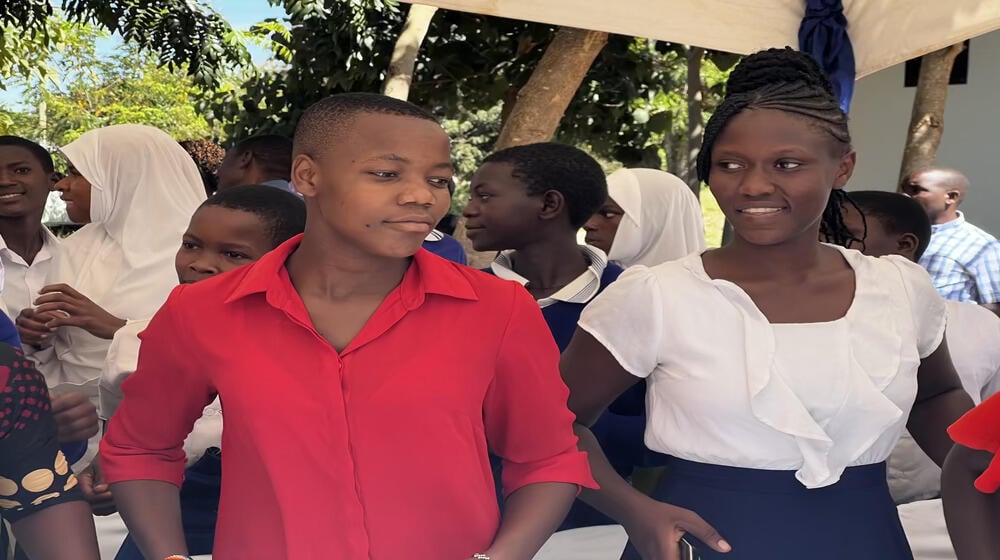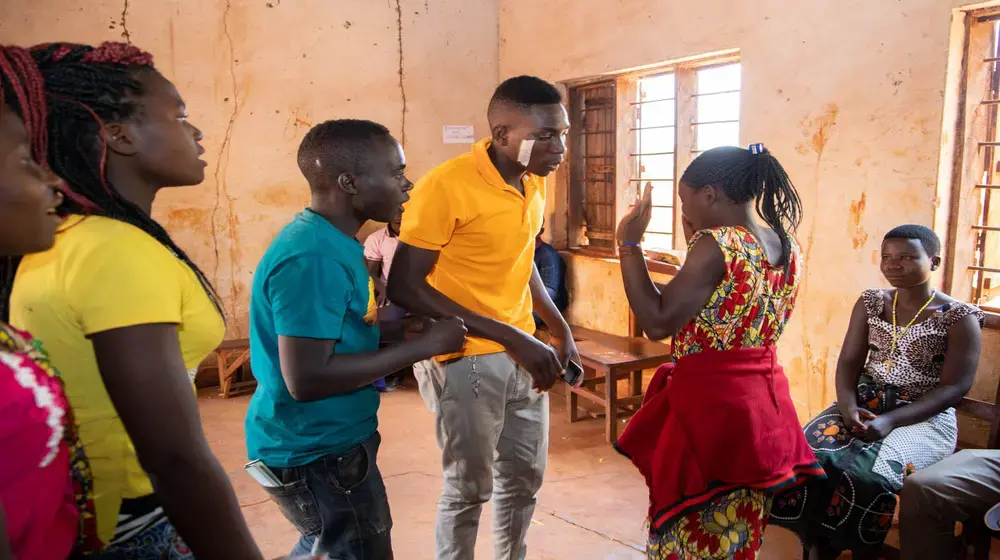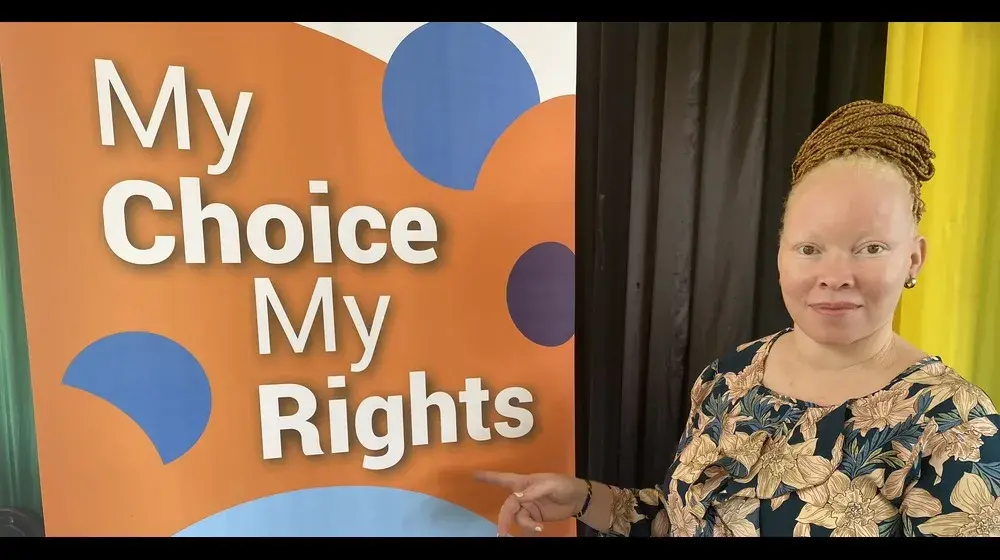Shinyanga - Five new facilities to support women’s empowerment and respond to gender-based violence have been handed over to the Government of Tanzania local authorities in Singida and Shinyanga Regions, through the support of UNFPA and UN Women, funded by the Government of the Republic of Korea through Korea International Cooperation Agency (KOICA). The five facilities: three One Stop Centres, one Police Gender and Children’s Desk, and one Collection Centre, and associated training and programming, have already significantly expanded gender-based violence (GBV) response capacity and women’s economic empowerment.
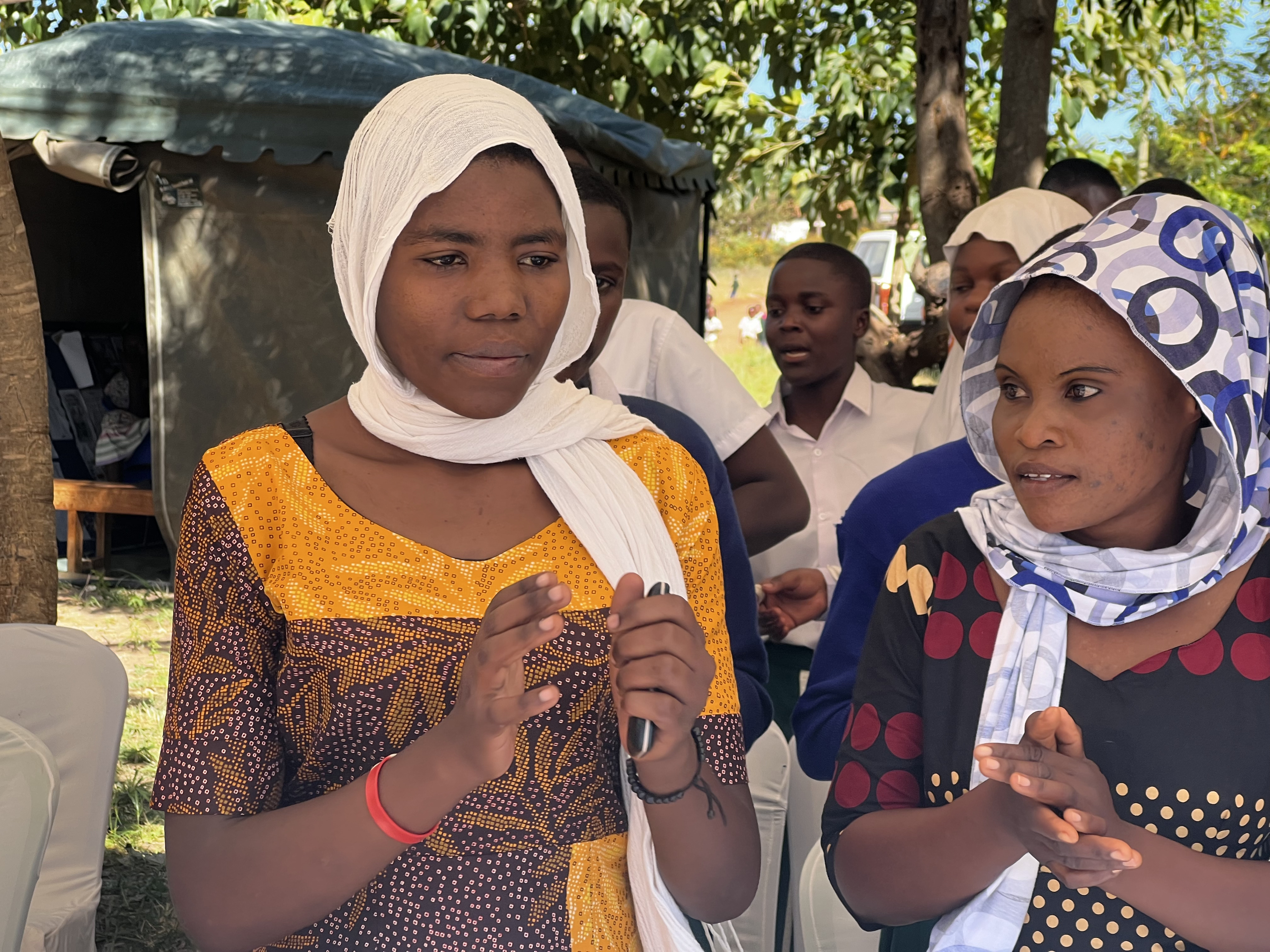
Women and girls in Bugarama, Shinyanga, celebrating the official handing over of the One Stop Center
located at Bugarama- Msalala, Shinyanga in Tanzania. Photo: @UNFPATanzania / Warren Bright
The handover ceremonies were held on 22 May in Singida, and on 24 May in Shinyanga. The ceremonies, attended by Regional Commissioners, UN agencies and KOICA representatives and local authorities, celebrated the achievements of the Joint Programme, Realizing Gender Equality through Empowering Women and Adolescent Girls. The Joint Programme, now in its final year (2020-2023) was funded by KOICA with 4.9 million USD. Through the programme over ten thousand people have been reached to enhance knowledge of their rights, support gender equality, and expand capacity to prevent and respond to GBV, and strengthen women’s economic empowerment in both Singida and Shinyanga Regions.
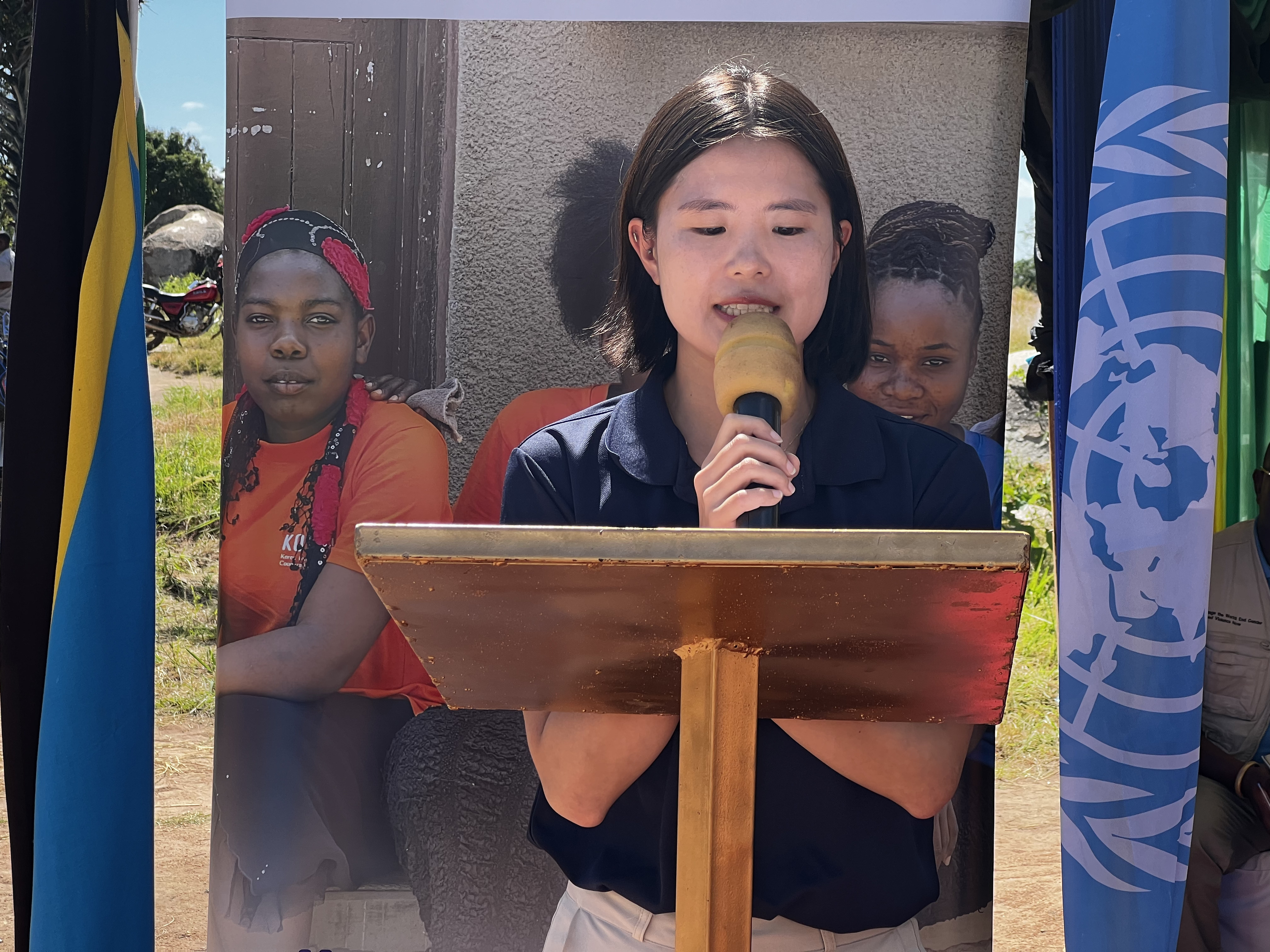
Ms. Heo Eun, KOICA Deputy Director in Tanzania, presenting a remarks on the occassion of the handing over of One Stop Center and
Police Gender and Children Desk in Bugarama - Msalala, Shinyanga Tanzania. Photo: @UNFPATanzania /Warren Bright.
“We commend the Government of Tanzania’s efforts in social and economic development including addressing issues of GBV and women economic empowerment. KOICA looks forward to providing vital legal, social, and medical services to GBV victims through the One Stop Centres which were constructed by our Project,” said Ms. Heo Eun, KOICA Tanzania Deputy Country Director. “Also, we are expecting to see consistent empowerment and growth of women agriculture groups who will contribute to Tanzania economic growth in the future by supporting the Collection Centre”.
The One Stop Centre at Bugarama Health Centre in Shinyanga Region is already functioning; the One Stop Centres at Ikungi District Hospital and Singida Referral Hospital in Singida Region have opened. These Centres, based on the grounds of health facilities, promote a survivor-centred approach to violence against women in a supportive environment, and provide GBV survivors with health, legal, and psychosocial support all under one roof.
The Police Gender and Children’s Desk in Bugarama, now officially launched, offers those exposed to violence and at-risk individuals respectful and confidential legal support and referral services to appropriate facilities. The One Stop Centres and Police Gender and Children’s Desks, all in newly constructed buildings, enhance infrastructure and strengthen local capacity to prevent and respond to GBV and harmful practices.
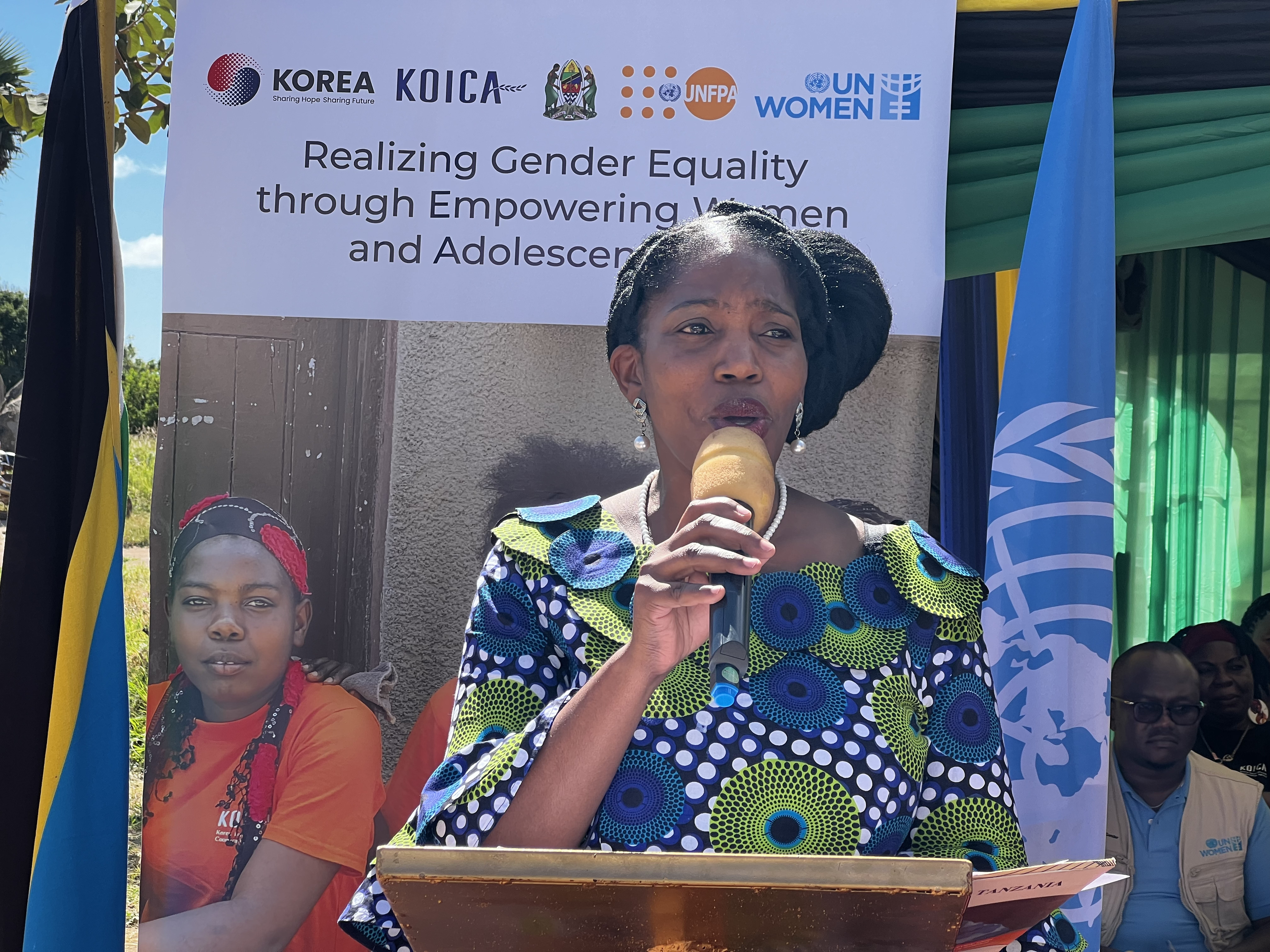
Ms. Melissa McNeil-Barrett, UNFPA Deputy Representative in the United Republic of Tanzania,
presenting the remarks on the occassion of the official handing over of One Stop Center and Police Gender and Children Desk
in Bugarama, Msalala, Shinyanga Tanzania. Photo: @UNFPATanzania /Warren Bright.
“The establishment of these One Stop Centres, and Police Gender and Children’s Desks represent great strides in strengthening local institutions to prevent and respond to GBV,” said Melissa McNeil-Barrett, UNFPA Deputy Representative, United Republic of Tanzania. “The impact of this programming is clear in the increased number of GBV cases being reported and referred.”
The Collection Centre in Ikungi District, Singida Region is also already functioning; this space enables scores of women and female youth small-scale farmers who sell horticulture produce to aggregate and store their produce, thereby enhancing collective marketing, improving postharvest handling, and leveraging economies of scale in marketing.
“Economic empowerment is a key method to promote gender equality and women’s empowerment,” said Hodan Addou, UN Women Representative to Tanzania. “Joint Programme efforts, including: the Collective Centre, gender-responsive land ownership rights, and inputs for agricultural productivity, all support women to measurably improve their income and resilience. In collaboration with local authorities, we are proud to support hundreds of women and female youth farmers to enjoy their rights, build their capacity, and expand their economic potential.”
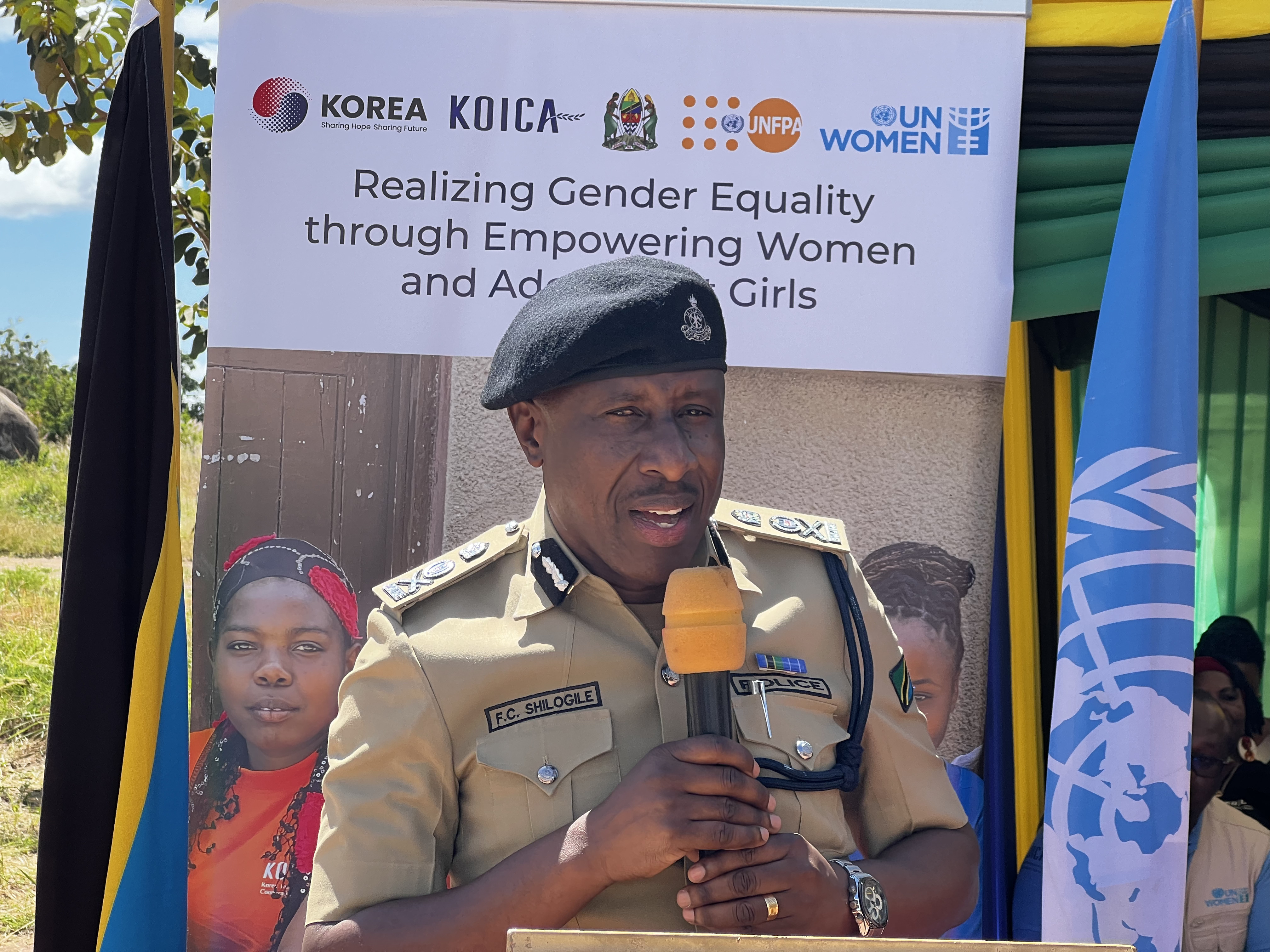
Commissioner Commander Faustine C. Shilogile, presenting remarks In Bugarama -Msalala, Shinyanga Tanzania on the occassion
of the official handing over of One Stop Center and Police Gender and Children desk, Photo: @UNFPATanzania /Warren Bright.
Overall achievements of the Joint Programme include the training of over 450 duty bearers (for health workers, paralegals, police officers) on prevention of and response to Violence Against Women and Children (VAWC), including those working at the One Stop Centres. Nearly 300 health care workers have been trained in GBV case management, including staff from the One Stop Centres. Impact is expanded through support for VAWC protection committees at the village, ward and district level.
A Sustainability Plan has been developed with local government authorities in the respective districts to maintain the results achieved through the Joint Programme and to scale up best practices to benefit other villages and districts. The Sustainability Plan facilitates local government partners and communities to continue efforts to uphold the rights of women and girls to live free from violence and promote gender equality and socio-economic empowerment.
For further information please contact:
Warren Bright ,
Communications Analyst,
UNFPA Tanzania.
Phone: +255 22 216 3516,
Email: bwarren@unfpa.org

